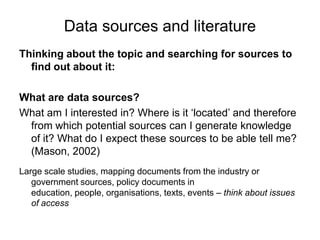This document outlines the schedule and content for a campus session on conducting workplace research. It includes:
- An introduction to defining topics, data sources, literature reviews, and learning diaries.
- A breakout session on how learning diaries can be used for the project.
- A discussion of researching as an insider and conducting qualitative/quantitative research.
- Activities to help students analyze how their professional roles may influence their research work.
The document provides guidance on key aspects of developing a research proposal for the module, including exploring topics, reviewing literature, and considering positionality as a worker-researcher.

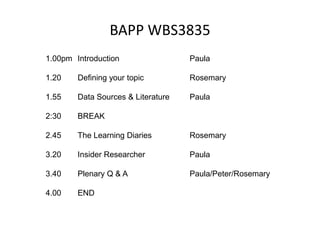
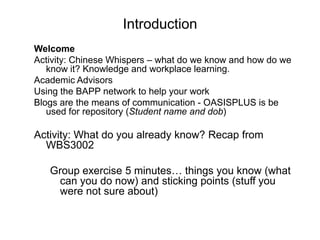
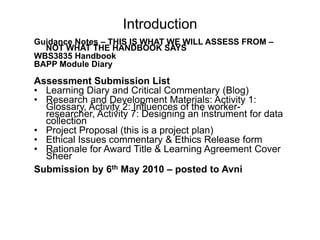
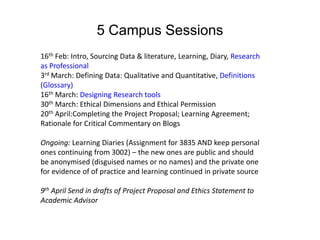

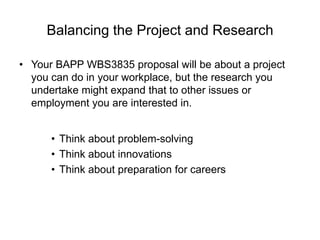
![Basic Project StructureKey features - focus on priorities, track performance, overcome difficulties, and adapt to change (flexible and responsive approach)Defined start and end - start up and close down stages.Organised plan - planned methodical approach is used to meet project objectives. Good planning ensures a project is completed on time and within budget - having delivered the expected results. An effective plan provides a template that guides the project and details the work that needs to be done.Separate Resources - allocated time, people, and money - working within agreed resources is vital to successfully completing the project.Teamwork - project team [employer, colleagues, professional networks, community of practice] – this might also mean Gatekeepers and your Academic Advisor.Established Goals - bring results in terms of quality and/or performance. Project may result in a new way of working, or create something that did not previously exist. Bruce and Langdon (2000) Project Management Essential Managers, London: Dorling Kindersley](https://image.slidesharecdn.com/1stcampussession16-2-10abbreviated-100217063416-phpapp02/85/1st-Campus-Session-16-2-10-Abbreviated-8-320.jpg)
